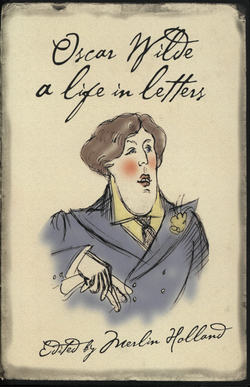Читать книгу Oscar Wilde: A Life in Letters - Оскар Уайльд, Merlin Holland, F. H. Cornish - Страница 69
To Helena Sickert
Оглавление25 April 1882 Fremont, Nebraska
My dear Miss Nellie, Since I wrote to you I have been to wonderful places, to Colorado which is like the Tyrol a little, and has great cañons of red sandstone, and pine trees, and the tops of the mountains all snowcovered, and up a narrow-gauge railway did I rush to the top of a mountain 15,000 feet high, to the great mining city of the west called Leadville, and lectured the miners on the old workers in metal—Cellini and others. All I told them about Cellini and how he cast his Perseus interested them very much, and they were a most courteous audience; typical too—large blond-bearded, yellow-haired men in red shirts, with the beautiful clear complexions of people who work in silver-mines.
After my lecture I went down a silver-mine, about a mile outside the little settlement, the miners carrying torches before me as it was night. After being dressed in miner’s dress I was hurled in a bucket down into the heart of the earth, long galleries of silver-ore, the miners all at work, looking so picturesque in the dim light as they swung the hammers and cleft the stone, beautiful motives for etching everywhere, and for Walter’s impressionist sketches. I stayed all night there nearly, the men being most interesting to talk to, and was brought off down the mountain by a special train at 4.30 in the morning.
From there I went to Kansas where I lectured a week. At St Joseph the great desperado of Kansas, Jesse James, had just been killed by one of his followers, and the whole town was mourning over him and buying relics of his house. His door-knocker and dust-bin went for fabulous prices, two speculators absolutely came to pistol-shots as to who was to have his hearth-brush, the unsuccessful one being, however, consoled by being allowed to purchase the water-butt for the income of an English bishop, while his sole work of art, a chromo-lithograph of the most dreadful kind, of course was sold at a price which in Europe only a Mantegna or an undoubted Titian can command!
Last night I lectured at Lincoln, Nebraska, and in the morning gave an address to the undergraduates of the State University there: charming audience—young men and women all together in the same college, attending lectures and the like, and many young admirers and followers among them. They drove me out to see the great prison afterwards! Poor sad types of humanity in hideous striped dresses making bricks in the sun, and all mean-looking, which consoled me, for I should hate to see a criminal with a noble face. Little whitewashed cells, so tragically tidy, but with books in them. In one I found a translation of Dante, and a Shelley. Strange and beautiful it seemed to me that the sorrow of a single Florentine in exile should, hundreds of years afterwards, lighten the sorrow of some common prisoner in a modern gaol, and one murderer with melancholy eyes—to be hung they told me in three weeks—spending that interval in reading novels, a bad preparation for facing either God or Nothing. So every day I see something curious and new, and now think of going to Japan and wish Walter would come or could come with me.
Pray give my love to everybody at home, and believe me your affectionate friend
OSCAR WILDE
Perhaps the most important aspect of Wilde’s American tour was that he found a voice of his own. After his synthetic utterances in the first month with their often verbatim borrowings from Ruskin, Morris and Pater, and their lukewarm reception by the press, Wilde soon realised that what interested the New World were his views on art education and what they should be doing about their own arts and crafts. The lectures changed accordingly with Wilde even becoming involved in the practical application of his theories. This enthusiasm was to reflect itself in much of his writing until the end of the decade. Leland had spent ten years in England and on his return to Philadelphia in 1881 founded the Industrial Art School.
